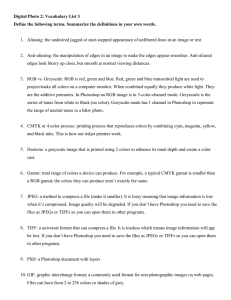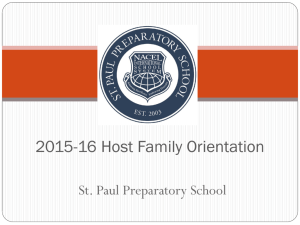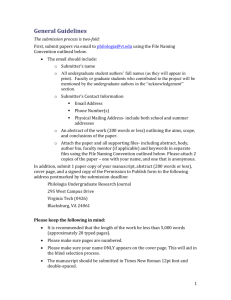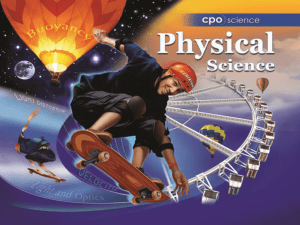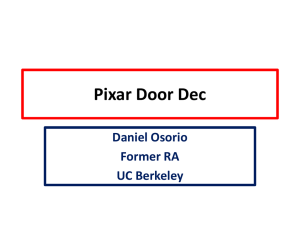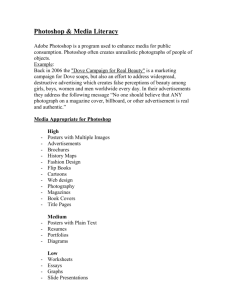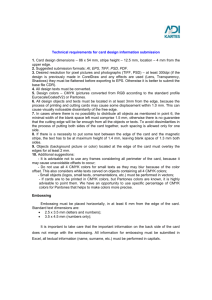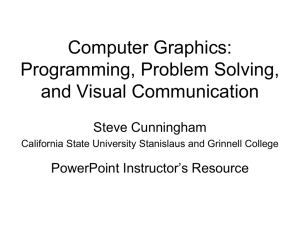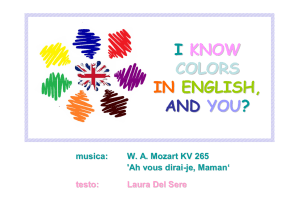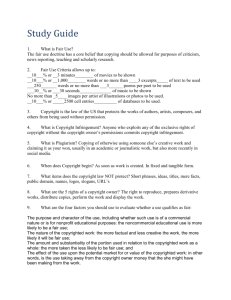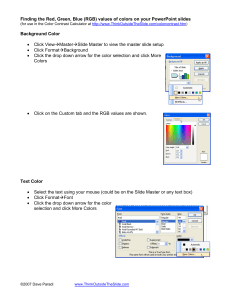An Introduction to Photoshop
advertisement
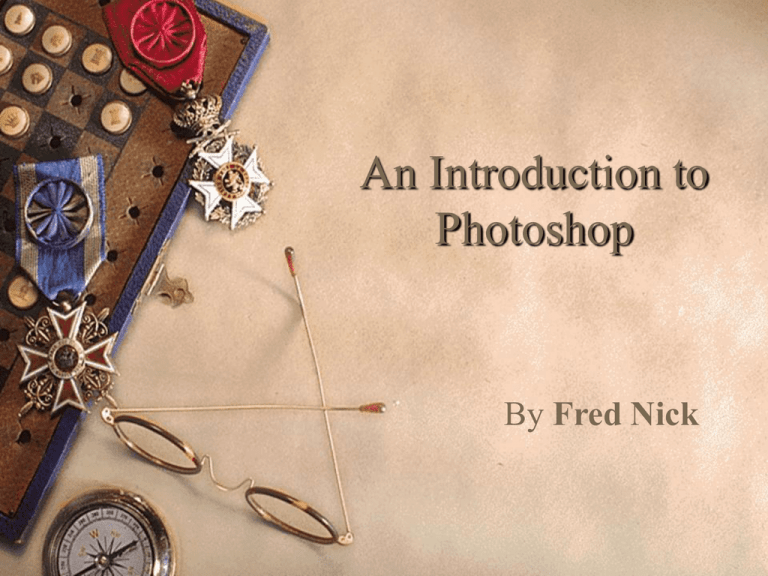
An Introduction to Photoshop By Fred Nick What is Photoshop? The digital equivalent of a Dark Room. Photo editing lab. Creative tool chest. Translator of formats characteristics. A scanning package. Everything above and more all in one package. What Photoshop is not. A drawing package. A slide organizing package. A movie making program. An internet tool. A web page development tool. Major Categories of Photoshop Use Scanning and then Manipulating. Photo Retouching and Alterations. Adding Special Effects using Filters Preparing Images to be Printed. Preparatory Concepts-Color RGB (Screen based) CMYK (Printing full-color Prints) Lab (Cross platform standard) Bitmap (Black & White) Grayscale (256 Shades of gray) Duotone (Two-four color channels – posters) Indexed (256 colors in one channel) MultiChannel (24 spot channels) Preparatory ConceptsTerminology Layers - Overlays of separate parts of the final Images. Like transparencies. Channels - Separation of the colors of the final images onto distinct sheets. Paths - Recorded tracings from the image. Some tools will follow the path while performing a task. Vectors not part of the image. Canvas versus image. Canvas is AREA you can work in. Image is presently used area. Actions - Recorded series of tasks for repeating or automating steps. Preparatory ConceptsTerminology History – Complete list of tasks performed. Allows multiple step undoes or the deletion of a previous step followed by the remaining steps. Gamut – The range of colors that a color system can display or print. The Spectrum of colors seen by the human eye is wider that the gamut available in any color model. Preparatory Concepts - Gamut Lab RGB CMYK
